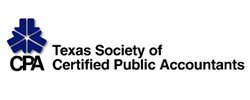Major Tax Deadlines
October 1
Generally the deadline for self-employeds and small businesses to establish a SIMPLE retirement plan for 2015.
October 15
Deadline for filing 2014 individual tax returns on automatic extension of the April 15 filing deadline
October 15
If you converted a regular IRA to a Roth IRA in 2014 and now want to switch back to a regular IRA, you have until October 15, 2015, to do so without penalty.
NOTE: Businesses are required to make federal tax deposits on dates determined by various factors that differ from business to business.
Payroll tax deposits:
Employers generally must deposit Form 941 payroll taxes (income tax withheld from employees’ pay and both the employer’s and employees’ share of FICA taxes) on either a monthly or semiweekly deposit schedule. There are exceptions if you owe $100,000 or more on any day during a deposit period, if you owe $2,500 or less for the calendar quarter, or if your estimated annual liability is $1,000 or less.
Monthly depositors
are required to deposit payroll taxes accumulated within a calendar month by the fifteenth of the following month.
Semiweekly depositors
generally must deposit payroll taxes on Wednesdays or Fridays, depending on when wages are paid.
What's New: Health insurers need your social security number
Among the many provisions in the Affordable Care Act is a new information return that “health coverage providers” must file with the IRS. Form 1095-B lets the IRS match your health insurance coverage with the information you report on your personal tax return.
Generally, a “health coverage provider” is an insurance company. To complete Form 1095-B correctly, your insurance company may ask you to provide your social security number. The request will come from the insurance company, not the IRS, and may simply be a letter. At present, there is no official IRS form for the insurance company to use to request your social security number.
Fraud prevention tip: Verify that requests for personal financial information are valid by contacting your insurance company directly.
Give your kids a head start with a Roth IRA
Would you like to give your child a head start on smart money habits? Here’s a suggestion: Have the child invest in a Roth IRA. Why? The tax-free compounding of contributions and investment returns over your child’s lifetime is a great wealth-builder.
Here's what you need to know.
- There is no minimum age to open a Roth IRA account. All your child needs is earned income, either from a job or from self-employment.
- The maximum contribution to a Roth IRA for 2015 is $5,500. Your child can contribute less and you can provide some or all of the cash, up to the amount of your child’s earned income.
- Your child won’t receive a federal tax deduction for a Roth IRA contribution — and will pay no federal income tax on qualified distributions taken after age 59½.
- You can continue to claim a qualifying child as a dependent on your tax return. Your child is also allowed a federal standard deduction of $6,300 for 2015, which means the first $6,300 of earned income is income-tax free.
- An early Roth IRA withdrawal could affect your child’s college financial aid. Your child can take withdrawals from a Roth penalty-free to pay for college costs. But those withdrawals generally count as income when applying for financial aid.
- If you own a business and can employ your child, you can benefit from additional tax savings, including a payroll deduction for your business. In addition, depending on how your business is organized, you may not have to pay federal payroll taxes such as social security, Medicare, and unemployment. Remember, your child must perform real services and the wages can’t be excessive.
Members



